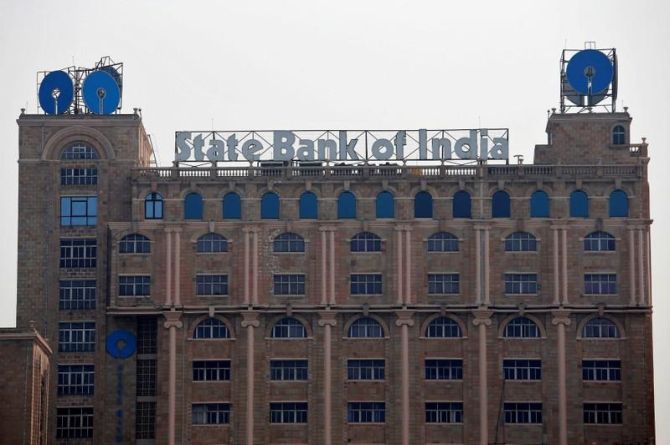SBI chief Rajnish Kumar said the focus going forward will be on cost reduction, rationalisation and reskilling of workforce, improving staff productivity and redeployment of workforce from admin offices to sales roles.

Amid COVID-19 induced disruption, the country's largest lender State Bank of India (SBI) will institute work-from-anywhere infrastructure and expects to save Rs 1,000 crore from this measure, chairman Rajnish Kumar said.
Speaking to shareholders at the bank's 65th annual general meeting on Tuesday, he said the focus going forward will be on cost reduction, rationalisation and reskilling of workforce, improving staff productivity and redeployment of workforce from admin offices to sales roles.
"Following global best practices, the bank will institute work-from-anywhere (WFA) infrastructure to facilitate work from any location, while taking care of social aspects of work-life balance.
"The measure is expected to save Rs 1,000 crore through cost optimization and will be a key component of our business continuity during times of COVID-19," Kumar said.
As the COVID-19 pandemic is still playing out, FY21 will be a challenging year for the bank like any other bank or financial institution, he said.
The bank is well prepared to deal with such challenges.
He said the lender has stepped up monitoring of all projects under implementation, and expects to tide over COVID-19 impact in the short to medium-term.
"Bank will maintain a constant vigil on the emerging stress and take proactive action to help our borrower customers and maintain asset quality," he noted.
The bank has already put in place an elaborate business continuity plan.
It has identified business continuity hub branches to cater to customers in case of emergency, and business continuity plan (BCP) sites have been identified to support essential back-end services.
In line with opportunities created by the 'Aatmanirbhar Bharat Package' for Micro, Small and Medium Enterprises (MSMEs), the bank has set up a financial inclusion and micro-market vertical to derive value in micro-markets, with a cost-efficient business model, he informed the shareholders.
"Cash flow-based lending models will be used, leading to efficient financing and help lower the delinquency," the chairman said.
He said the pandemic has brought to focus the value of contactless digital banking channels.
The mobile banking app of the bank, SBI YONO, has already achieved sizeable growth.
"The bank will further scale up YONO and has set a target of doubling user registrations in the next six months and further strengthening the platform through new product offerings like end-to-end home loans, pre-approved car loan and personal gold loans," he said.
A strong liability franchise with a customer base of over 44 crore, a diversified loan portfolio with strong capabilities to originate, digital leadership across channels are some of the key strengths that the bank will rely upon in the post-COVID scenario, he added.
The lender also conducted a general meeting of its shareholders, later in the day, to seek approval to raise up to Rs 20,000 crore of equity capital in the current fiscal.
The results of e-voting on the proposal will be declared later.
In a filing to exchanges last month, the bank had said it will seek shareholders nod in the meeting "to create, offer, issue and allot, such number of equity shares of Re 1 each, for an amount not exceeding Rs 20,000 crore or such amount as approved by the government and RBI subject to the condition that the Government of India shareholding in equity share capital of the bank does not fall below 52 per cent at any point of time'.
The shares would be allotted by way of public issue (follow-on public offer) or private placement, including qualified institutional placement (QIP)/global depository receipt (GDRs)/American Depository Receipt (ADRs) and/or any other mode(s) or a combination(s) thereof.
While speaking to shareholders, Kumar said the bank will decide on the best mode for raising capital at the right time.
"We will decide on raising the capital in the best possible manner so that existing minority shareholders of the bank are not put to any disadvantage," he said.
Photograph: Rupak De Chowdhuri/Reuters











 © 2025
© 2025